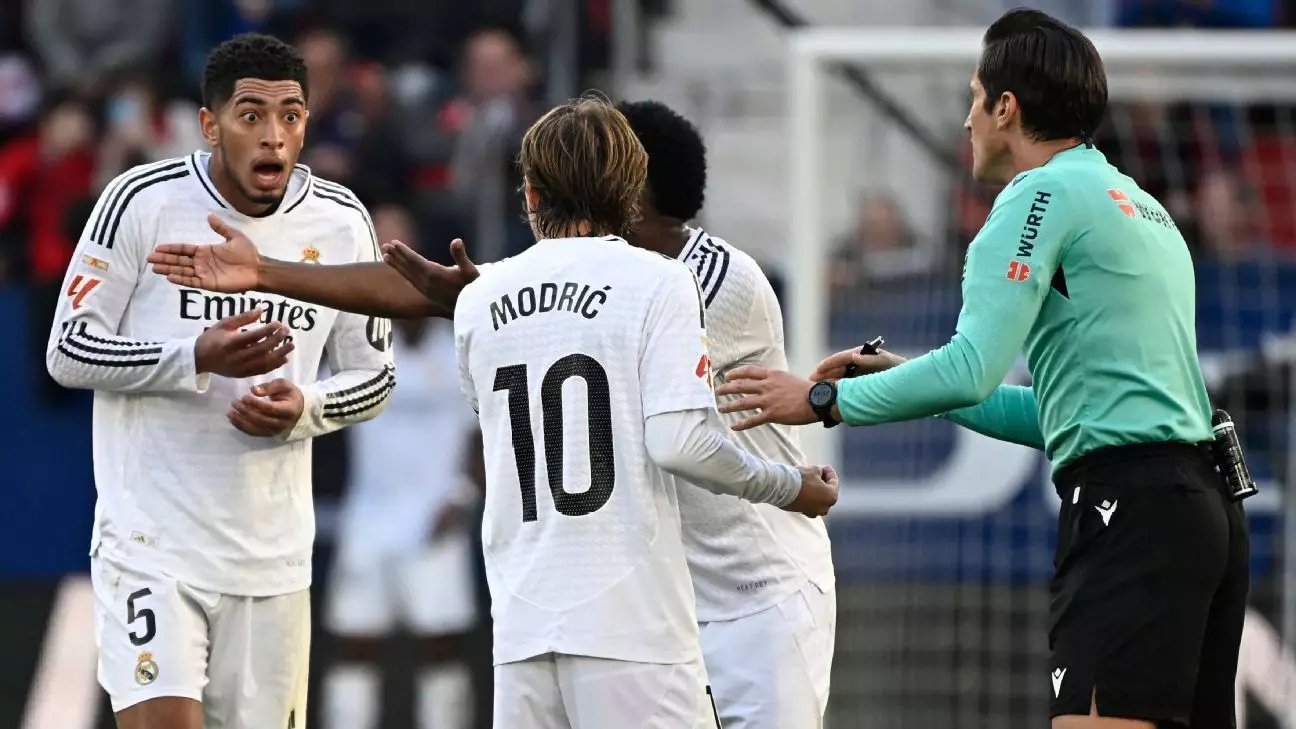The recent match between Real Madrid and Osasuna showcased not only thrilling football but also highlighted the often-contentious relationship that exists between players and officials. Jude Bellingham, the young England midfielder, found himself at the center of controversy when he was sent off for an exchange with the referee, José Luis Munuera. As tensions escalated on the pitch, questions surrounding the context and interpretation of actions emerged, drawing attention to broader issues in officiating in football.
Bellingham received a red card in the 40th minute following what appeared to be a heated exchange with Munuera after a call he found questionable. The player had been protesting a perceived injustice relating to a handball by an Osasuna defender that went unpunished. This particular moment was rife with emotional intensity, particularly as Real Madrid was in a fragile position, holding a slender 1-0 lead thanks to an earlier goal from Kylian Mbappé.
In the aftermath of the match, Bellingham openly expressed his belief that the referee misinterpreted the nature of his comments. He pointed to a misunderstanding that, according to him, led to the unjust consequence of being shown a red card. By referencing video evidence, he aimed to shed light on what he claimed to be a discrepancy between the referee’s report and actual events. His plea reflected a desire for fairness and clarity in what can sometimes seem like a subjective interpretation of incidents on the pitch.
The crux of Bellingham’s argument rests on the concept of miscommunication—a pathway that, in this case, led to a significant turning point in the match. Manager Carlo Ancelotti echoed these sentiments, suggesting that a language barrier might have played a role in the altercation. His assertion that Bellingham’s words were misheard implies a lack of understanding that can occur not just on the field but also within the broader ecosystem of international football.
Ancelotti further emphasized that the emotional charge of the moment should not eclipse the player’s intentions, stating that Bellingham “wasn’t being disrespectful.” This highlights a crucial point in officiating: the need for referees to possess not only a comprehensive understanding of the game but also an ability to navigate the cultural nuances of different languages and expressions.
While Bellingham accepted that the incident could not alter the outcome of the match—Osasuna equalizing with a second-half penalty—he advocates for a systematic evaluation of such situations moving forward. His comments propose that officials should be open to reevaluation of decisions, particularly when video evidence may suggest alternative interpretations, thereby fostering transparency and accountability.
The interplay between player conduct and officiating decisions raises important questions about the future of match management. Are referees equipped to handle emotional exchanges, especially in high-stakes scenarios? Should the officiating body implement further training for referees on linguistic and cultural understanding?
Bellingham’s red card incident serves as a stark reminder of the complexities inherent in football officiating. As the debate unfolds, it becomes increasingly clear that open communication and understanding within the beautiful game are just as critical as the rules written upon them. Ultimately, with both players and referees dedicated to dialogue and improvement, the hope remains that such incidents become fewer and the spirit of the game prevails.

Leave a Reply